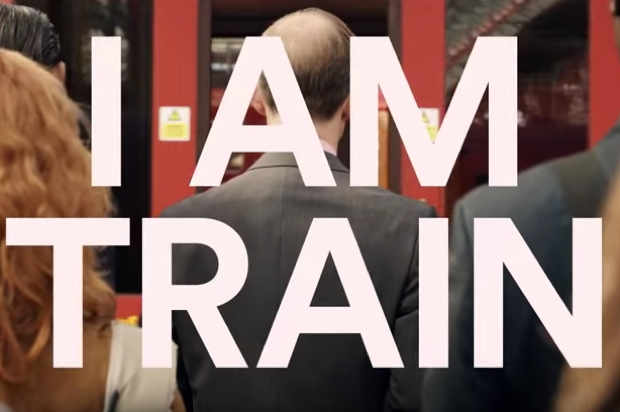It used to be ‘Your M&S’. That was presumptuous enough. Now, when you drive past Earls Court exhibition hall, pathetically covered in plastic sheeting while being demolished to make way for a high–quality, mixed-tenure residential neighbourhood, the hoarding tells you you’re going past ‘My Earls Court’. You can read all about it on myearlscourt.com.
No, it is not my Earls Court. And nor will I like it more if you try to tell me it is mine. The same with Church Street, London NW8: there’s redevelopment here, too, and it’s being flaunted as ‘mychurchstreetnw8’. No it’s not. Stop trying to make me take psychological ownership of your so-called urban renaissance. This is what I call ‘the aggressive first person’.
We’re having too many mys thrust upon us these days. If you so much as click on a website, it’s not long before you’re encouraged to take possession of it: My Apple, My Virgin Media, My Sky, My Talktalk. The first-person possessive pronoun is foist upon us — or upon ‘me’ — to give the illusion that I’m being given a personal, exclusive, bespoke service tailored exactly to me, whereas in fact I’m just enjoying (or not enjoying) one of their five deal packages for the month.
They want to make us feel as if we possess our own cosy, carpeted corner of their vast corporation, rather as a little girl might proudly possess part of the My Little Pony collection. I resent being stereotyped as someone so acquisitive, self-centred and obsessed with ownership. I’m not.
Nor am I train. We’re being bombarded with advertisements on buses for the website The Train Line with the slogan ‘I am train.’ I am not train, and I do not pass through the ticket barriers like a wind. I quite like going on trains, but that’s as far as it goes. Who is this person trying to make me behave as if I am actually a train?
Another example of the aggressive first person is this: ‘I’m a renewable bag. I’m made with natural fibres so I’m great for the environment and gorgeous.’ You see those words on Sainsbury’s hessian bags. That’s the aggressive first person dressing up as the cute first person. ‘How sweet,’ we’re meant to think, ‘that a hessian bag can talk to us and say such adorable things about itself! I’ll definitely start using one of those bags now.’ The words are always written in a fake-childish font to add to the cuteness. They make you feel horribly patronised and preached-at. The people in head office have obviously decided that, although they, the intelligent ones, understand all about saving the environment, if it’s to get across to thick us, they’ll need to put it in baby language. The fact that they think this is gently, lovably humorous also depresses me about the state of the British sense of humour.
‘I’m packed with goodness,’ says the muesli packet. ‘Keep me refrigerated,’ says the carton of family-friendly juice. Can you all stop talking to me as if you’re human, please?
I log in to the ‘espaceclient’ of EDF’s French website to pay an electricity bill and find that the aggressive first-person is just as rife in France. The whole transaction is done in the first person. ‘J’accède à mon espace client.’ ‘Je découvre tous les moyens de paiment.’ ‘Je choisis le Prélèvement Automatique!’ This reminds me of the old Ladybird Book of School, which said, in large letters with illustrations, ‘We wash our hands.’ ‘We dance to the music.’ ‘We tidy the nature table.’
The use of the aggressive first person on that EDF website made me feel like a six-year-old child with learning difficulties, and I even found myself saying those French sentences to myself in a baby voice. Do we really need our hand to be held like that, just to pay a bill? Of course, there’s no kind schoolmistressy person there to help you if you do get into difficulties.
More and more of what we do doesn’t involve any human contact. We’re on our own, running our lives at our screens, and we’re being lulled into a sense of being loved, cared about and important. But it is a false sense. No one loves us and nothing much is ours. I prefer the more honest second person in YouTube: less invasive. But the me-camp is winning. When the next Kitchener recruits his army and navy to fight the world war, the poster luring us to certain death will say ‘My Country Needs Me.’






Comments